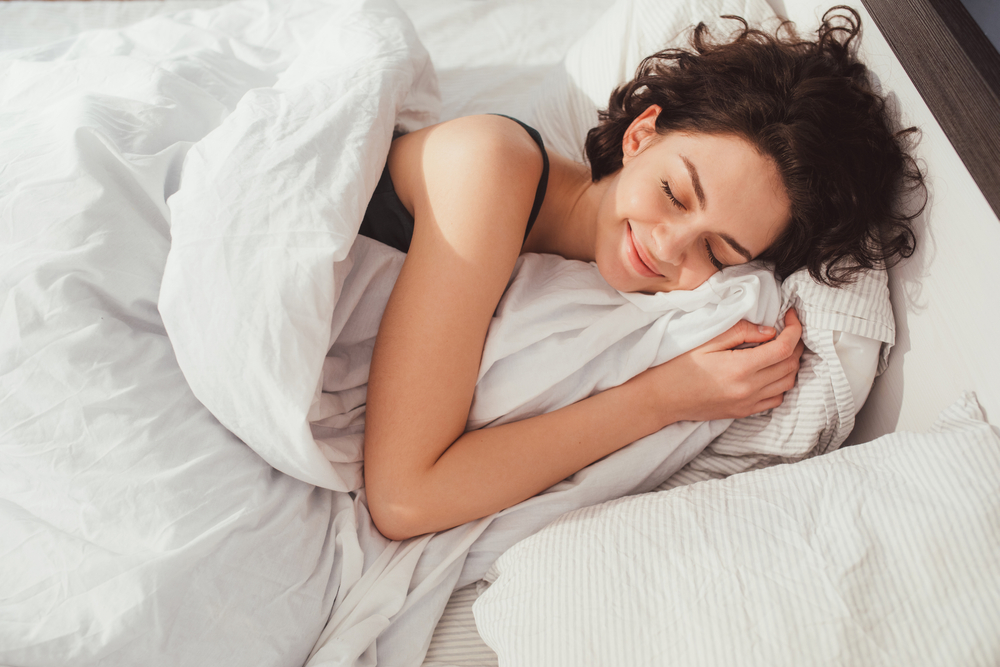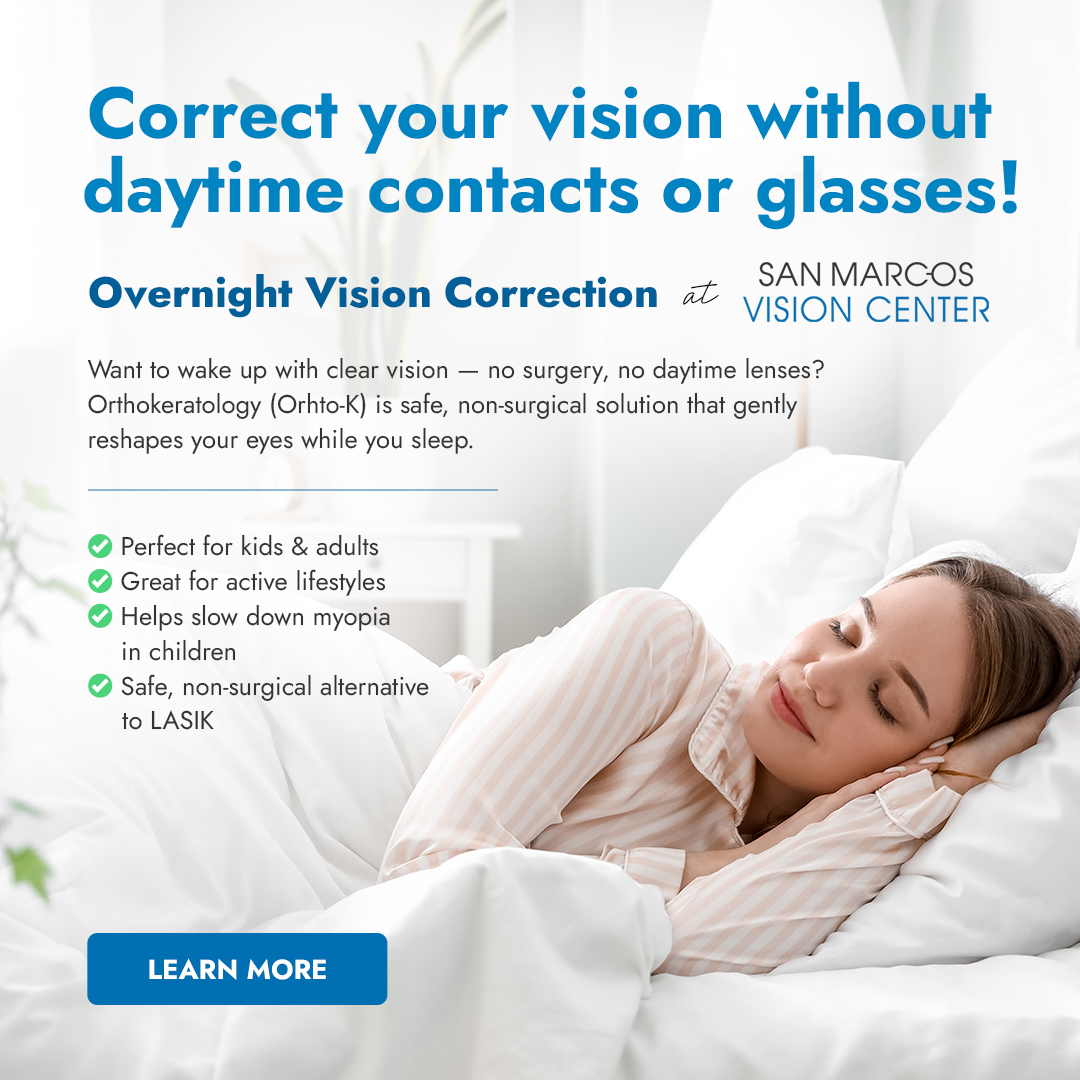
In the bustling world that we live in, the significance of maintaining robust eye health and ensuring sufficient sleep often goes unnoticed. Many individuals are unaware of how intertwined these two facets of health are and how they can impact our overall well-being.
This article dives into the intricate relationship between eye health and sleep, shedding light on why paying attention to both is essential for maintaining optimal health.
Understanding the Relationship Between Eye Health and Sleep
The link between getting enough sleep and maintaining good eye health is stronger than many might realize. Ensuring we get proper rest plays a pivotal role in keeping our eyes functioning optimally.
The Role of Sleep in Eye Health
● Rejuvenation: During sleep, the body channels its energy into repairing and maintaining tissues, including those in the eyes. This nightly rest allows the eyes to recover from the day's strains.
● Debris Clearance: As we go about our day, our eyes collect irritants like dust and allergens. Sleep gives our eyes the chance to clear out these irritants, reducing the risk of discomfort or infection.
● Rest: Simply put, our eyes need a break. Constant exposure to light and the need to focus can tire them out. Sleep offers this much-needed rest.
Consequences of Sleep Deprivation on Eye Health
● Dry Eyes: Without enough sleep, tear production can falter, leading to dry and irritable eyes. Tears are necessary for lubrication and protection against infections.
● Eye Strain: For those glued to screens, not getting enough rest can exacerbate the effects of extended eye use, resulting in strain characterized by tired, sore, and itchy eyes.
● Long-Term Effects: Chronic sleep deprivation may even contribute to more serious eye conditions over time, reflecting the critical nature of sleep for eye health.
Proper sleep hygiene can significantly benefit ocular health, underscoring the need for regular and uninterrupted sleep as an integral part of our overall wellness routine.
The Impact of Blue Light on Sleep and Eye Health
The proliferation of digital devices in our day-to-day lives has led to increased exposure to blue light. The impact of this light on our sleep patterns and eye health is an important aspect of our overall well-being to consider.
Blue Light’s Effect on Sleep
● Disruption of Sleep Cycle: Blue light's high-frequency energy can interfere with our natural sleep-wake cycle, known as the circadian rhythm. It suppresses melatonin secretion, a hormone that regulates our sleep.
● Delayed Sleep: Melatonin suppression can result in a delayed onset of sleep, difficulty falling asleep, and overall poor sleep quality.
Blue Light and Eye Health
● Eye Strain: Extended exposure to blue light has been linked to digital eye strain or 'computer vision syndrome'. Symptoms include dryness, irritation, and fatigue in the eyes.
● Potential Long-term Damage: Over time, chronic exposure to blue light may increase the risk of developing age-related macular degeneration, which can lead to vision loss.
Mitigating the Impact of Blue Light
● Limit Screen Time Before Bed: Reducing your digital screen exposure in the evening can help lessen the impact of blue light on your sleep patterns.
● Use Blue Light Filters: Many devices now offer settings or apps that filter out blue light, helping to protect the eyes and maintain natural sleep patterns.
● Blue Light Glasses: For additional protection, you may consider using glasses specifically designed to block or filter blue light.
Recognizing and minimizing exposure to blue light can significantly improve sleep patterns and eye health.
Importance of Sleep for Eye Health
Good sleep is indispensable not only for overall health but particularly for keeping our eyes in prime condition. The connection between sufficient sleep and eye health is profound, with restful nights being a cornerstone for preventing and managing eye-related issues.
Healing During Sleep
● Repair and Recovery: The eyes undergo a lot of strain during the day, whether from staring at screens, exposure to sunlight, or the wear and tear of daily activities. Sleep provides a period for the eyes to repair themselves.
● Removal of Irritants: Our eyes accumulate irritants like dust and allergens throughout the day. Sleep aids in cleansing these irritants, reducing the risk of infections or discomfort.
Sleep’s Role in Preventing Eye Conditions
● Reducing Risk of Glaucoma: Glaucoma, a condition that damages the optic nerve, has been linked to inadequate sleep. Quality sleep helps regulate the eye's internal pressure, reducing the risk of this condition.
● Combating Age-related Macular Degeneration: Adequate sleep supports the eyes' ability to recover from the damaging effects of UV light exposure and other environmental stressors, potentially slowing down the progression of age-related macular degeneration.
Strategies for Promoting Eye Health Through Sleep
● Establish a Sleep Routine: Going to bed and waking up simultaneously each day can positively affect your sleep quality and duration, directly benefiting your health.
● Create a Restful Environment: Ensuring your sleeping environment is conducive to rest can help improve sleep quality and offer a better healing period for your eyes.
Prioritizing sleep is essential for maintaining healthy eyes. It's not just about the quantity of sleep but also its quality, as the eyes use this time to heal and rejuvenate from daily stresses.
Tips for Improving Sleep and Maintaining Eye Health
Good sleep and eye health go hand in hand. By improving your sleep, you’re also taking a vital step towards keeping your eyes healthy. Let’s look at some straightforward habits that can help achieve this.
Establishing a Sleep Schedule
● Consistency: Try to sleep and wake up simultaneously every day, even on weekends. This practice helps set your body's internal clock and improves the quality of your sleep.
● Bedtime Rituals: Create a relaxing bedtime routine to signal to your body that it's time to wind down. This might include reading, taking a bath, or some gentle stretching.
Reducing Eye Strain
● Follow the 20-20-20 Rule: To minimize eye strain, every 20 minutes, take a 20-second break and focus on something at least 20 feet away from you.
● Optimize Your Workspace: Ensure your screen is placed at eye level and about an arm's length away. This positioning helps reduce strain on the eyes and neck.
Preparing Your Environment for Sleep
● Comfortable Setting: Make sure your bedroom is cool, dark, and quiet and that it is conducive to sleeping. Investing in comfortable bedding can also help improve sleep.
● Limit Exposure to Bright Lights: Dim the lights in your home during the evening to help your body transition into sleep mode more naturally. Bright light can interfere with the production of the sleep hormone melatonin.
Integrating these practices into your daily routine benefits your eyes and can enhance your overall health and well-being. Your eyes work hard all day and deserve the restorative break quality sleep offers.
Lifestyle Factors That Affect Both Sleep and Eye Health
Broader lifestyle choices greatly influence both sleep and eye health. Various aspects, like what we eat, how active we are, and how we cope with stress, can significantly affect both areas.
Balanced Diet for Eye Health
● Importance of Vitamins and Minerals: Consuming a diet rich in vitamins A, C, and E, along with zinc, can support good vision. These nutrients are found in green leafy vegetables, citrus fruits, and fortified cereals.
● Omega-3 Fatty Acids: Foods with high omega-3 fatty acid content, like fish, can support eye moisture and help prevent dry eye syndrome.
Exercise to Improve Sleep
● Physical Activity: Regular exercise can help combat sleep disorders and promote better sleep quality. Exercise helps reduce stress, tire you out, and helps regulate your body’s internal clock, all of which can improve sleep.
Stress Management for Better Sleep and Eye Health
● Meditation: Techniques like mindfulness and meditation can help reduce stress levels and improve sleep quality. Stress can have physical manifestations, including eye strain, so managing it can promote better eye health.
● Yoga: Yoga is not only a form of physical activity but also helps reduce stress. Certain yoga asanas targeted at relaxation can significantly improve sleep quality.
Even small changes to our daily habits can greatly impact sleep and eye health. Adopting a healthier diet, exercise, and stress management habits can foster better sleep while promoting strong vision, reinforcing the interconnected nature of our health.
Conclusion
The link between keeping our eyes healthy and getting good sleep is really important. Just like we need to make sure we get enough sleep, we also need to take good care of our eyes. They both are key parts of staying healthy overall.
Knowing how sleep affects our eyes and the other way around helps us make small changes in our lives that can help a lot. This includes doing things like cutting down on blue light from screens. So, remember, looking after your eyes is as necessary as making sure you sleep well. Both are crucial for living a healthy and happy life.

 Specialty Contacts
Specialty Contacts





